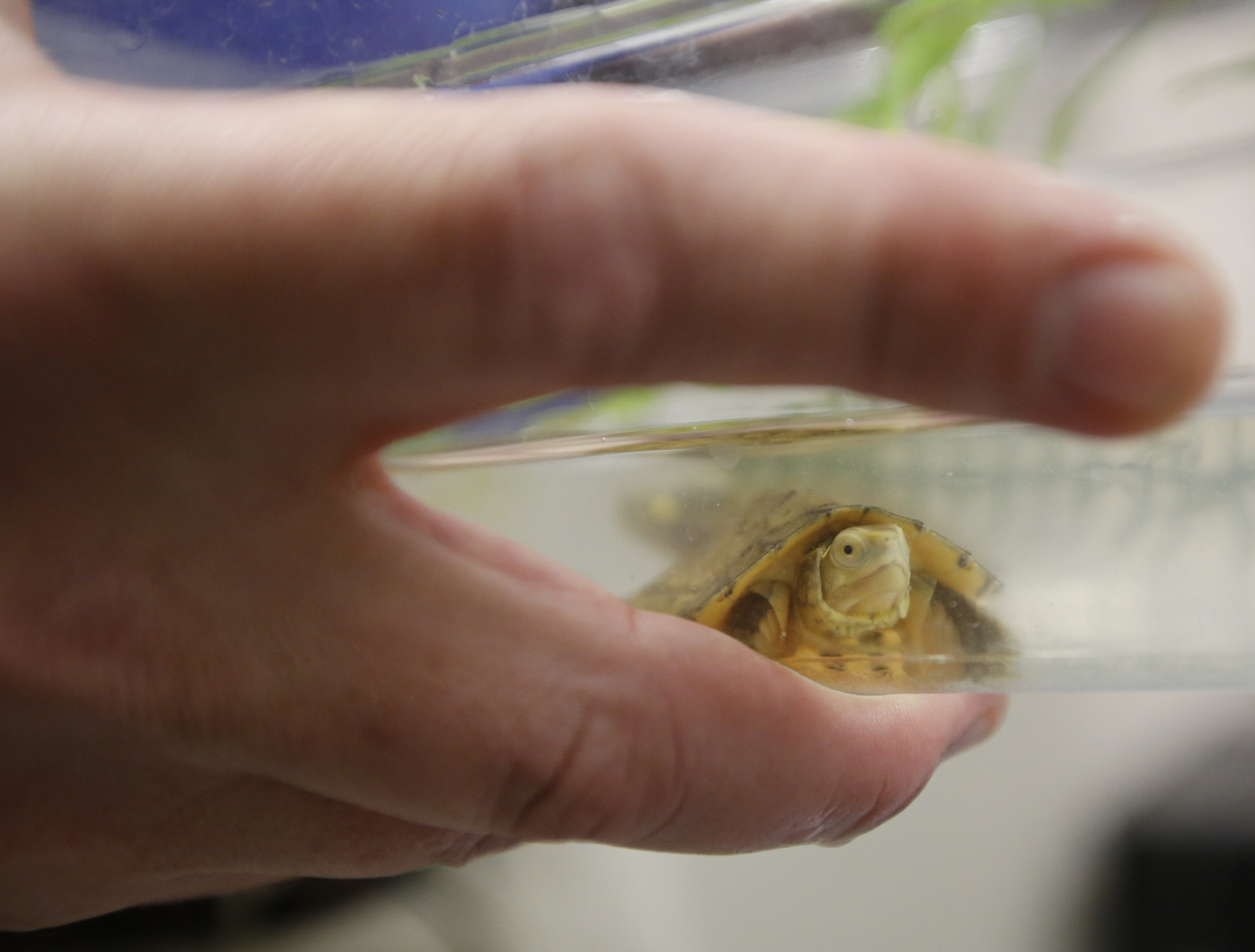 A four-eyed turtle stares from a nursery tray held by senior herpetologist Bill Hughes on Wednesday at the turtle nursery of the Tennessee Aquarium. At the aquarium, Hughes has successfully bred a number of the endangered four-eyed turtle species, which gets its name from colored dots on the back of its head.
A four-eyed turtle stares from a nursery tray held by senior herpetologist Bill Hughes on Wednesday at the turtle nursery of the Tennessee Aquarium. At the aquarium, Hughes has successfully bred a number of the endangered four-eyed turtle species, which gets its name from colored dots on the back of its head.The Tennessee Aquarium has two newly hatched sets of baby four-eyed turtles, but these hatchlings don't need glasses and are neither teenage, mutant nor ninja in nature.
Though they share a name with the schoolyard insult for spectacled children, these turtles, which in reality have only two eyes, get their moniker from spots on the back of their heads that look like a second set of eyes. Endangered in the wild, the Aquarium breeds the turtles to both help conserve the species and to place them at other facilities.
The Aquarium's senior herpetologist, Bill Hughes, had been puzzling over how to more successfully breed the notoriously difficult species, and it seems that careful control over their environmental temperature during the winter has led to success.
Between June and July, Hughes hatched seven four-eyed turtles, two more than the Aquarium's previous record, and three variants called Beal's four-eyed turtles. In seven years of breeding, the Aquarium had previously hatched only six of the Beal's turtles. Part of the challenge lies in the number of eggs, which are laid by this species only once a year in clutches of between one and four.
When he first began breeding the four-eyed turtles, Hughes says he asked advice from a colleague and was told, simply, "Good luck."
"Sometimes if it's a species that no one's working with, you have no idea what to do," said Hughes. But that's at least part of the reason the breeding program exists. "One of our goals is to try to figure out how to breed these species so we can share that information with other interested parties like other zoos," he said.
After about a month in their climate-controlled plastic-tub nursery, most of the four-eyed turtles will be sent to other institutions as a sort of insurance policy for the species. "There's a few other institutions who have offspring from us, but since the adults are all here, keeping the babies here is like keeping all your eggs in one basket," Hughes said.
The rarer Beal's, whose adult population at the Aquarium is less robust, will likely stay at the facility so that they, too, can eventually begin breeding.
